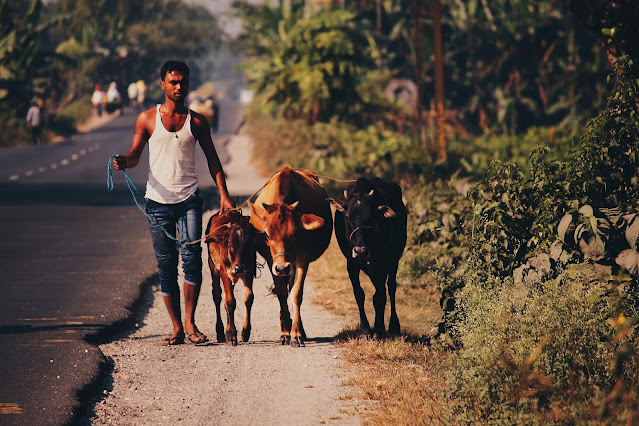The Rural Livelihood Initiative & Women In Bihar
In rural Bihar, women are forming self-help groups to start their small businesses and break free from the clutches of poverty. When you drive on the state highways of Bihar, you come across signboards of these state-supported women groups on the village link roads. You can find one signboard on each road that leads to a village. It must be a successful project with a huge number of beneficiaries, it makes you wonder.
These self-help groups are part of the Bihar Rural Livelihoods Project (BRLP), also known as JEEVIKA, which is aimed at social and economic empowerment of the rural poor.
As in 2023, the JEEVIKA programme, run by Bihar Rural Livelihoods Promotion Society, has more than 10 Lakh (1 Million) self-help groups across Bihar. When we take the success stories of JEEVIKA in the context of the huge number of participants, there's too little to cheer. Most of the women who are part of the SHGs continue to remain poor.
The JEEVIKA programme aims to build strong and bankable women communities - self-help groups (SHGs). These SHGs are designed to rely on member savings, internal loaning and regular repayment to become self-sustaining organizations over time. The SHGs are then federated at the village level by forming village organizations (VOs) and at the cluster level to become membership-based social service providers, business entities and valued clients of the formal banking system. The project design is based on the strategy of building a multi-tiered, self-sustaining community institutions.
The project is designed with ambitious goals of empowering rural poor communities in Bihar. However, despite its impressive strategy, it has struggled to have a positive impact on the majority of its participants.
One of the key drivers of women joining JEEVIKA groups is the availability of low-cost loans that they can raise through the self-help groups. While the program provides opportunities for women to start small businesses, many of them end up taking loans at cheaper rates (around 12% per year) and using the money for their family needs instead of investing in income-generating activities.
This phenomenon has led to a situation where the JEEVIKA program fails to effectively address poverty in rural Bihar. Many women, who are part of the self-help groups, remain financially dependent and unable to create sustainable livelihoods for themselves and their families.
To address this challenge, the JEEVIKA program needs to prioritize the creation of income-generating activities that can provide a sustainable source of income for the participants. This would require a shift in focus from providing low-cost loans to creating opportunities for entrepreneurship and job creation in the rural areas.
In addition, the program should also consider providing training and support to women entrepreneurs, particularly those who are just starting their businesses. This would help them develop the skills and knowledge needed to successfully manage and grow their businesses.
The JEEVIKA program has the potential to make a positive impact on the lives of rural women in Bihar. However, there's a need to prioritize the creation of sustainable livelihood opportunities rather than just providing low-cost loans. By empowering women entrepreneurs and helping them build sustainable businesses, the program can create a more positive and long-lasting impact on the communities it serves.





